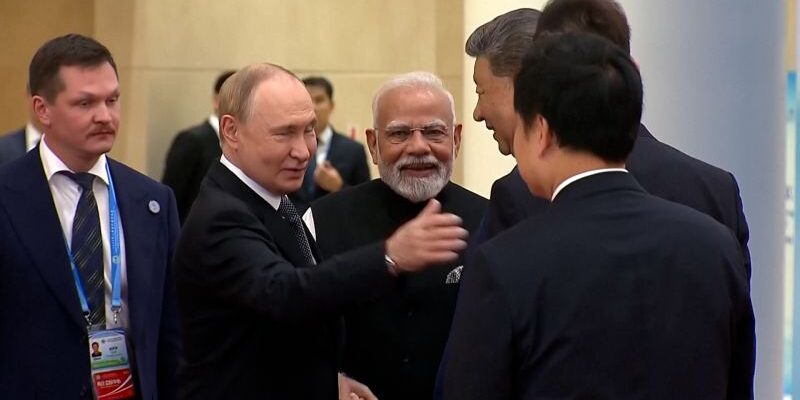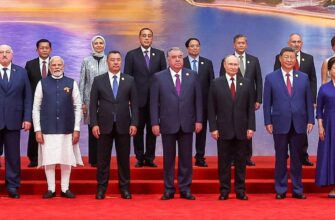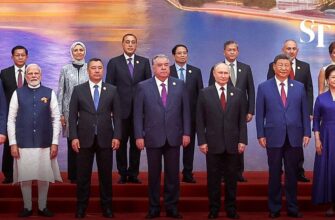In a diplomatic exchange that underscored the evolving landscape of international relations, Russian President Vladimir Putin and Indian Prime Minister Narendra Modi convened for bilateral discussions on September 1, 2025, at the Shanghai Cooperation Organization (SCO) summit in Tianjin. This high-level engagement, lasting nearly 50 minutes, reaffirmed the enduring “special privileged strategic partnership” between Moscow and New Delhi, signaling a concerted effort to navigate a complex global order through established multilateral frameworks.
The SCO: A Platform for Eurasian Convergence
The choice of the SCO summit as the backdrop for these critical talks is inherently significant. The Shanghai Cooperation Organization, initially formed to address security concerns in Central Asia, has expanded its mandate and membership, including India in 2017. It now represents a substantial economic and geopolitical bloc in Eurasia, increasingly serving as a forum for dialogue and cooperation among its member states on a range of issues from security to trade and cultural exchange. In an era marked by shifting global power dynamics, the SCO offers an alternative platform for coordinated action, emphasizing sovereign equality and mutual benefit.
A Partnership Forged in History, Refined for the Future
The relationship between Russia and India is characterized by a deep historical lineage, robust defense cooperation, and growing economic ties. President Putin, addressing Prime Minister Modi as “dear friend,” highlighted the upcoming 15th anniversary of their joint declaration that elevated relations to a “special privileged strategic partnership.” This designation is not merely symbolic; it reflects extensive collaboration across various sectors, including military-technical cooperation, civil nuclear energy, space exploration, and a burgeoning trade relationship that both nations are keen to expand further.
“Can confidently state that the multifaceted Russian-Indian ties are actively developing on these principles,” President Putin remarked, underscoring the consistent growth and resilience of their bilateral engagement.
Prime Minister Modi reciprocated the sentiment, expressing his anticipation for President Putin`s visit to India in December for the 23rd annual bilateral summit. Such regular, high-level interactions are the bedrock of this partnership, providing consistent opportunities for leaders to align strategies, resolve emerging issues, and chart future directions in a rapidly changing world.
Beyond Diplomatic Courtesies: Unpacking the Agenda
While specific details of the 50-minute discussion remain confined to diplomatic channels, the context of the SCO summit suggests a comprehensive agenda. Key areas likely included:
- Regional Security: Discussions on stability in Central Asia, given the shared concerns regarding Afghanistan and cross-border threats.
- Economic Cooperation: Strategies to boost bilateral trade, diversify economic engagement beyond traditional sectors, and explore new avenues for investment, particularly in energy and infrastructure.
- Multilateral Coordination: Harmonizing approaches on global issues within the SCO, BRICS, and other international forums, particularly concerning climate change, global economic governance, and reforms of international institutions.
- Energy Security: India, as a major energy consumer, and Russia, a significant energy producer, undoubtedly deliberated on securing stable and affordable energy supplies, a critical component of national economic stability.
The image of Prime Minister Modi departing the meeting with a “satisfied smile” offers a subtle, yet telling, indicator of constructive dialogue and perhaps the successful resolution of certain agenda points. In the intricate dance of international diplomacy, such visual cues often convey more than carefully worded communiqués.
Implications for the Global Stage
The consistent and high-level engagement between Russia and India, particularly within the framework of the SCO, carries significant implications for the global geopolitical landscape. It demonstrates a commitment to a multipolar world order, where power is distributed among multiple centers rather than being concentrated in a single hegemon. This partnership provides a counter-narrative to the prevailing Western-centric international system, offering alternative economic and security alignments that resonate with many non-Western nations.
As 2025 unfolds, such interactions will be crucial in defining new spheres of influence and cooperation, potentially setting precedents for how states manage their interests amidst increasing global complexities. The Tianjin summit, therefore, was not merely a meeting of two leaders, but a strategic affirmation of an enduring partnership poised to influence future international dynamics.
The bilateral talks between President Putin and Prime Minister Modi at the 2025 SCO summit in Tianjin underscore the robustness of the Russia-India strategic partnership. Far from being a mere formality, this meeting served as a vital mechanism for coordinating policies, reinforcing economic and security ties, and projecting a shared vision for a more balanced and cooperative global order. As both nations continue to pursue their national interests on the world stage, their continued collaboration within organizations like the SCO will undoubtedly remain a focal point of international observation.









